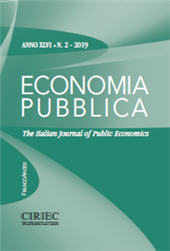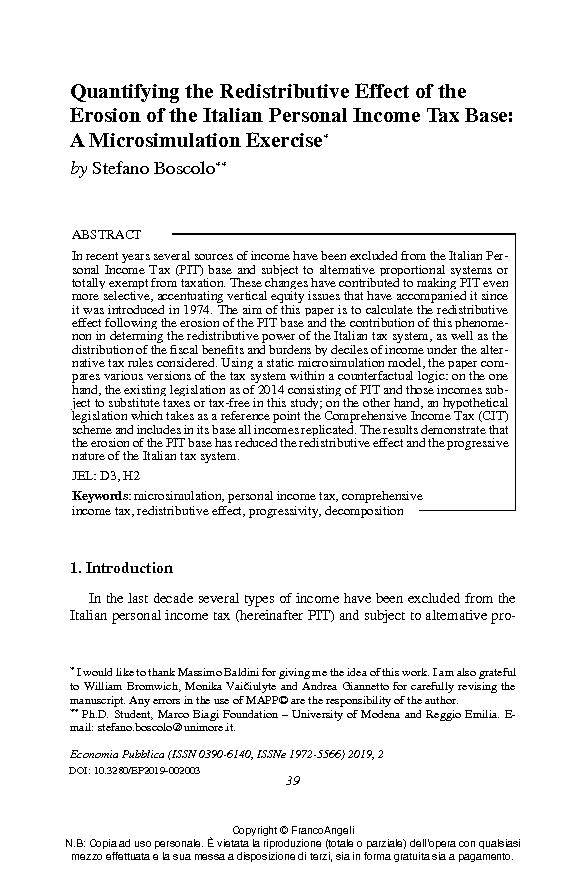Quantifying the Redistributive Effect of the Erosion of the Italian Personal Income Tax Base : A Microsimulation Exercise
39-80 p.
In recent years several sources of income have been excluded from the Italian Personal Income Tax (PIT) base and subject to alternative proportional systems or totally exempt from taxation. These changes have contributed to making PIT even more selective, accentuating vertical equity issues that have accompanied it since it was introduced in 1974. The aim of this paper is to calculate the redistributive effect following the erosion of the PIT base and the contribution of this phenomenon in determing the redistributive power of the Italian tax system, as well as the distribution of the fiscal benefits and burdens by deciles of income under the alternative tax rules considered. Using a static microsimulation model, the paper compares various versions of the tax system within a counterfactual logic: on the one hand, the existing legislation as of 2014 consisting of PIT and those incomes subject to substitute taxes or tax-free in this study; on the other hand,
an hypothetical legislation which takes as a reference point the Comprehensive Income Tax (CIT) scheme and includes in its base all incomes replicated. The results demonstrate that the erosion of the PIT base has reduced the redistributive effect and the progressive nature of the Italian tax system. [Publisher's text].
Is part of
Economia pubblica : XLVI, 2, 2019-
Articles from the same issue (available individually)
-
Information
ISSN: 1972-5566
KEYWORDS
- Microsimulation, personal income tax, comprehensive income tax, redistributive effect, progressivity, decomposition



